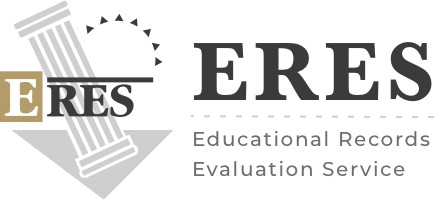Blog
From Abroad to the Classroom: Transitioning to Teaching in the U.S.

Teaching in the United States is an exciting and rewarding career choice. It’s like immersing in American culture and gaining valuable experience in a new advanced education setting.
But, this transition can seem daunting for foreign cultures.
Since the demand for diverse perspectives is growing rapidly, more U.S. schools have recognized the value of international educators to add value to American education and foster cultural exchange.
This increasing need has opened doors for foreign educators to bring their unique set of know-how and skills to the students in the U.S. not just professionally but also culturally.
Now, are you wondering….
“How do I start the teaching career in the U.S.?”
“Can a foreign teacher teach in the U.S.?”
Let’s explore- :
Can a Foreign Teacher Teach in the U.S.?
Yes, foreign teachers can teach in the U.S., however, there are some things you need to know to make it.
In general, U.S. schools are open to hiring foreign teachers as there is a need for teachers in the country.
There is increased enrollment of students in academic institutions, especially in certain fields such as science, math, and foreign languages.
However, teaching is a profession that is well governed in the United States and foreign teachers have to fulfill certain conditions before they can teach there.
Visa Requirements:
J-1 Visa (Exchange Visitor Visa)
Teachers who receive the J-1 visa are sponsored by an accredited institution of higher education or educational exchange program in the United States. This visa enables the teachers to temporarily reside and practice in the United States.
H-1B Visa (Specialty Occupations)
This visa is for teachers with specific qualifications in certain subject areas. H-1B is very competitive and a U.S. employer must sponsor the occupation.
Green Card (Permanent Residency)
At times, teachers can get a permanent residency, (Green Card) through their employers. This generally takes more time but offers a chance of permanent employment in U.S. schools.
Certification
To teach in the U.S.A., teachers from abroad must meet the certification for the state in which they seek to teach.
1) Must have a Bachelor of education or a related field
2) Experience in Teaching (depending on the state)
3) English proficiency tests like TOEFL or IELTS.
4) State certification exams to measure basic knowledge in your field of specialty and pedagogy skills
Key Considerations for Foreign Teachers
Here are some of the important elements to consider for foreign teachers -:
1. Learning from Colleagues
Teachers often move to another school system with a different culture and education system for professional development.
One of the best methods of professional development is to teach with and learn from our fellow educators.
This includes assessment of aspects such as their instructional mode, methods, approaches, and behavior within the classroom.
But it does not end at observation; it also involves applying the approach to find solutions to a specific problem. If a specific method of teaching is seen as credible, then, you can attempt to interpret it in one’s capacity.
2. Handling Cultural Differences
In the process of immigration, it is unavoidable to face cultural differences within the host country and the implied cultural adjustment. However, maintaining regular contact with your friends, and family can directly contribute to this process.
It reminds you of your identity, purpose, origin, and the values you grew up with – altogether helping you to adapt to a new culture.
That way, it also prevents culture shock and fosters a sense of belongingness towards any foreign country.
3. Identifying & Promoting New Skills
Your experience of teaching in international schools is a valuable addition to your profile.
Regardless of your choice of profession, teachers develop valuable skills such as flexibility, leadership, the ability to communicate across cultures, and critical thinking—all qualities that no employer will sneeze at getting.
These skills should be emphasized in CVs/detailed resumes and interviews since they set you apart in a competitively saturated job market; they also illustrate your capacity to be flexible and handle different modes of operation.
4. Leveraging Your Network
Don’t worry, you are not alone on this entire journey! Find as many colleagues who have also returned to their home country to teach to share experiences with.
Contact other educators who are from your TEFL program or the teachers you met during your travels. Use social media channels including Reddit, Facebook, and LinkedIn to increase your pool of connections and to research the marketplace.
Perhaps speaking to those who have already traveled this path may be of great help when deciding on your next course of action.
Getting to know other teachers who have come back from other countries also helped in making the transition smooth.
Key Takeaways
Becoming a teacher in the U.S. is an enriching experience that offers professional and personal growth in a dynamic education setting.
However, this position requires the right qualifications, certification, and understanding of the visa process to make a lasting impact on the lives of students.
At ERES, we understand your requirements and help you find the best teaching positions across the U.S. for a unique experience. Our team is all here to help you with the preparation and end-to-end visa process.
Call us now and let's discuss today!
Start Now
ERES
Educational Records Evaluation Service helps Non-US educated individuals to receive their US equivalences with our credential evaluation reports.
Services
Contact us
Tue - Fri: 10:00 to 16:00 ( PST )
4773 Mangels Blvd, Fairfield, CA 94534, USA.
© 2025 Educational Records Evaluation Service. All rights reserved.











